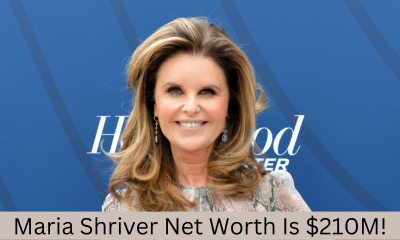Finance
Current Market Trends: Where to Find the Highest FD Interest Rates

In the ever-evolving financial landscape, finding investment avenues that guarantee safety and generate substantial returns is crucial. Fixed Deposits (FDs) have long been the preferred investment instrument for risk-averse investors in India. The rationale behind this preference is the promise of assured returns, minimal risks, and ease of understanding. This article delves into the current market trends to help you locate the highest FD interest rates available.
Understanding Fixed Deposits
Fixed Deposits are investment schemes offered by banks and financial institutions where money is deposited for a fixed tenure at a predetermined interest rate. Upon maturity, the principal amount along with accumulated interest is returned to the depositor. What makes FDs attractive is their fixed interest rate which is immune to market fluctuations, ensuring predictable returns.
Current Highest FD Interest Rates
As of now, several banks and Non-Banking Financial Companies (NBFCs) in India are offering competitive interest rates. Typically, private sector banks and small finance banks offer higher interest rates compared to public sector banks. Below are some institutions offering the highest FD interest rates:
1. Small Finance Banks
Small finance banks, created with the objective of reaching out to underserved sections of the society, often provide higher interest rates on FDs as part of their strategy to attract deposits.
– Utkarsh Small Finance Bank: Offering up to 8.00% interest for a tenure ranging between 1 to 3 years.
– Equitas Small Finance Bank: Providing interest rates up to 7.50% for deposits over 1 to 2 years.
– Ujjivan Small Finance Bank: Interest rates here go up to 7.80% for tenures between 1 to 3 years.
2. Private Sector Banks
Contrary to public sector banks, private sector banks present relatively better interest rates to compete and attract more clients.
– YES Bank: Offers interest rates up to 7.50% for tenures ranging from 1 to 3 years.
– IndusInd Bank: Provides interest rates up to 7.40% for similar tenures.
– RBL Bank: Offering 7.00% to 7.25% interest rates for 1 to 2-year tenures.
3. Public Sector Banks
Though they generally offer lower interest rates compared to their private counterparts, some public sector banks provide competitive rates for specific tenure brackets.
– State Bank of India (SBI): Offers up to 6.75% for senior citizens under certain special schemes and 5.75% for the general public on tenures ranging between 1 to 3 years.
– Bank of Baroda (BOB): Offering interest rates up to 6.50% for senior citizens and 5.90% for the general public for similar tenures.
4. Non-Banking Financial Companies (NBFCs)
NBFCs, in order to attract investors, sometimes offer higher interest rates compared to traditional banks.
– Bajaj Finance: Offering up to 7.60% interest for tenures between 1 to 3 years.
Factors Influencing FD Rates
Various factors determine the interest rates on Fixed Deposits:
- Reserve Bank of India (RBI) Policies: The central bank’s monetary policy, including changes in repo rates, directly influences FD rates. A hike in repo rate generally translates to an increase in FD rates.
- Inflation: Higher inflation often leads to higher FD interest rates as financial institutions try to attract funds to counter inflationary pressures.
- Liquidity in Banking System: Banks and financial institutions offer competitive rates during liquidity crunches to attract deposits.
- Economic Conditions: Overall economic health and market conditions play a pivotal role. During economic downturns, FD rates tend to rise as institutions look for secure ways to gather funds.
Calculating FD Returns
Understanding the returns on your Fixed Deposit is essential for financial planning. Here’s a simple calculation to illustrate:
– Suppose you invest ₹1,00,000 in an FD for 2 years at an interest rate of 7.50%.
– Using the formula for annual compound interest: A = P (1 + r/n)^(nt)
– A = Total amount after time period ‘t’
– P = Principal amount (₹1,00,000)
– r = Annual interest rate (0.075)
– n = Number of times interest is compounded per year (1, since it’s compounded annually)
– t = Number of years (2)
Thus,
A = 1,00,000 (1 + 0.075/1)^(1*2)
= 1,00,000 (1.075)^2
= 1,00,000 * 1.155625
= ₹1,15,562.50
After 2 years, the maturity amount would be ₹1,15,562.50, accruing interest worth ₹15,562.50.
Conclusion
FDs continue to be a cornerstone for those seeking secure investment options with assured returns. Notwithstanding the lower returns compared to riskier investment avenues, the stability and predictability of FDs make them indispensable in a balanced investment portfolio. Keeping abreast of market trends and interest rates offered by various institutions can significantly enhance your investment returns.
Disclaimer
The above information regarding the highest FD interest rates and trends is intended for informational purposes. Potential investors should thoroughly evaluate all factors, including individual financial goals and risk appetite, before making any investment decision. Trading in the Indian financial market involves risk, including the risk of loss. Always consult with a financial advisor to understand the pros and cons of various investment options.
Summary
Finding the highest FD interest rates is critical for maximizing returns on your investment. Currently, small finance banks like Utkarsh Small Finance Bank, Equitas Small Finance Bank, and Ujjivan Small Finance Bank top the charts with interest rates peaking at 8.00%. Private sector banks such as YES Bank and IndusInd Bank are not far behind, offering rates up to 7.50%. Public sector banks like SBI and BOB, though traditionally offering lower rates, provide competitive rates for specific tenure brackets. NBFCs such as Bajaj Finance also offer attractive rates. With factors such as RBI policies, inflation, liquidity in the banking system, and economic conditions influencing FD rates, staying informed is crucial. Understanding how to calculate returns will aid in financial planning. Remember to consult with a financial advisor for informed decision-making in the Indian financial market.





















































